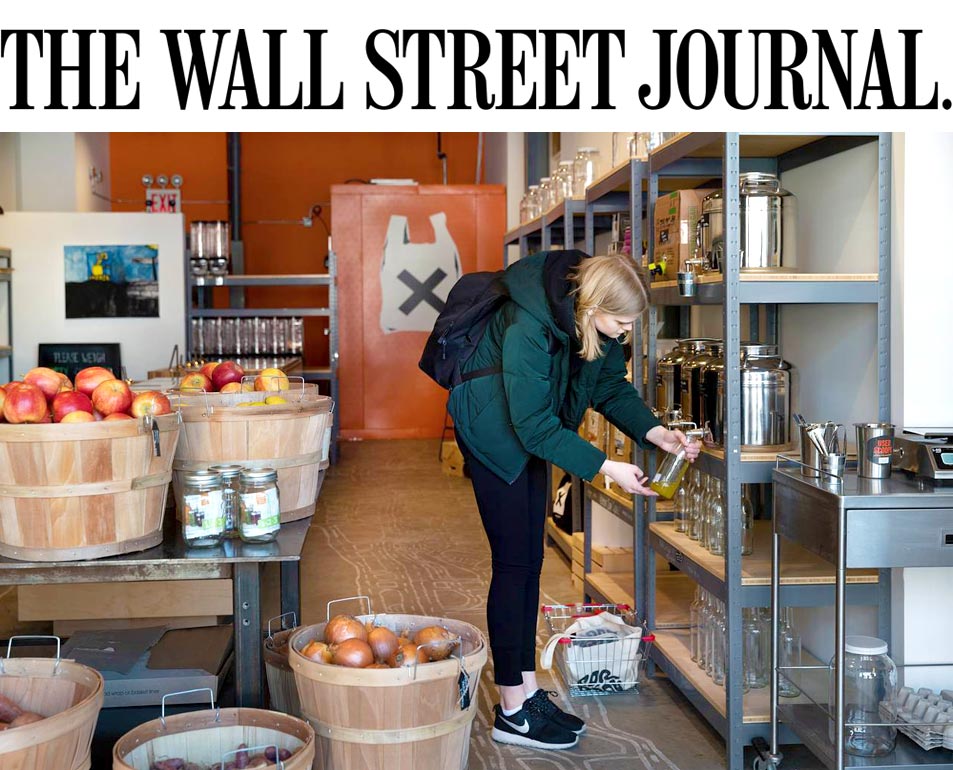WSJ: Can Zero-Waste Grocery Stores Make a Difference?
by By Jane Black, for The Wall Street Journal
Photo: Juliana Sohn
There are zero-waste grocery stores in Brooklyn, Denver, London and Berlin, and dozens more specializing in beauty and household products.
In many ways, these stores are the progeny of the natural food co-ops that sprouted in the 1970s. But the women—and they are almost all women—opening zero-waste stores now understand that to succeed they have to build in convenience. There are no mandated work hours or membership fees. If you don’t have your own container you can buy or borrow one that’s been cleaned and sanitized. The Wally Shop, one of the newest startups, operates as a kind of zero-waste Instacart, offering customers same-day delivery by bike in Brooklyn and, soon, Manhattan. Founder and CEO Tamara Lim, 26, describes her company as a 21st-century milk man who delivers more than milk.
Photo: Juliana Sohn
Zero-waste evangelists talk about their “journey” to a new way of living and shopping. Katerina Bogatireva, who opened Precycle in Brooklyn in December, took her first steps when she tried, and only partially succeeded, to reduce the trash she and her young son produced. “It was difficult to shop. You had to buy one thing here, one thing there,” she said. “And then there were the snacks. Try telling your 6-year-old that he can’t have a fig bar because it’s wrapped in plastic.”
And so Precycle aims to be a mostly one-stop shop. The bright, open-plan store in the hip Bushwick neighborhood sells fruits and vegetables, beans, pasta and rice, oils, vinegars, soaps, spices, eggs, even bulk tofu, which has been a surprise hit. For snacks, there are dried fruits, nuts, popcorn, granola. Only meat and fish are missing.
…
The Wally Shop, meanwhile, is working to offer convenience on parallel with Amazon Prime. (Ms. Lim, not coincidentally, started her career at the Seattle behemoth managing, among other categories, retail of packaging and shipping supplies.) Customers who order before 2 p.m. have their food delivered the same day between 6 and 8 p.m.
When the Wally Shop receives an order, it dispatches a shopper to buy products at local farmers markets and co-ops as well as at Precycle. Shoppers pay the price the store charges, plus a 5% service fee and a delivery fee. Vegetables come in cotton mesh bags, bulk grains in Mason jars. Customers also pay $1 per item for packaging but get it back when they return the container.
Photo: Juliana Sohn
A test order on the site that included lentils, apples, broccoli, avocados, soba noodles, raisins and a jar of raw, local honey totaled about $50—not cheap, but neither are the Brooklyn markets where the items are purchased. When you consider the mere $5.99 delivery fee built in, and the time and money the shopper saves by having someone else do the legwork, it sounds like a bargain.



